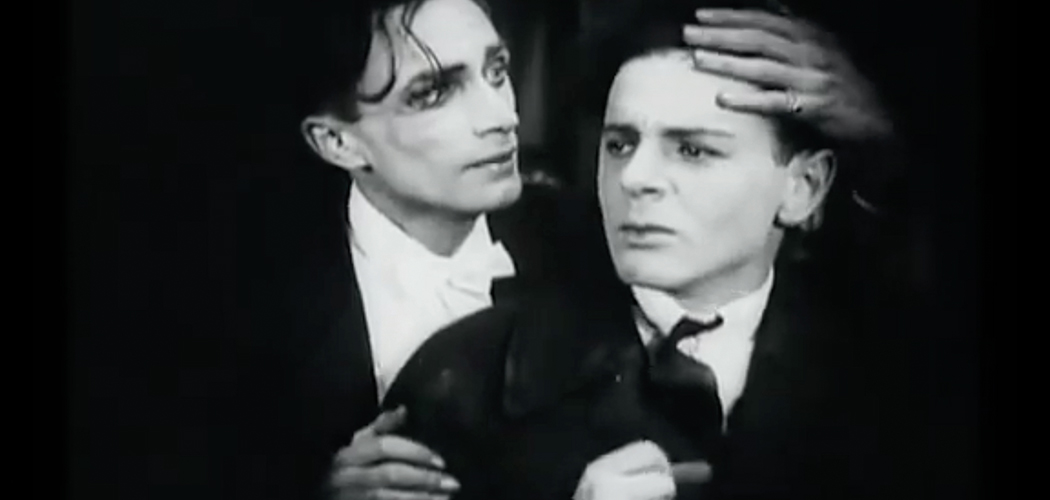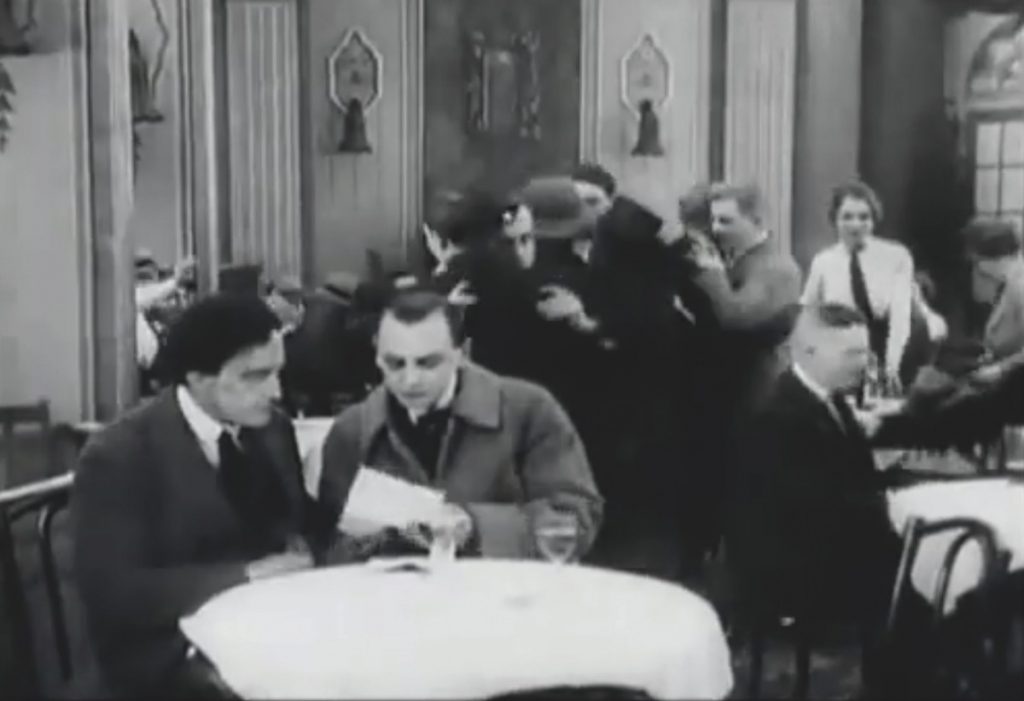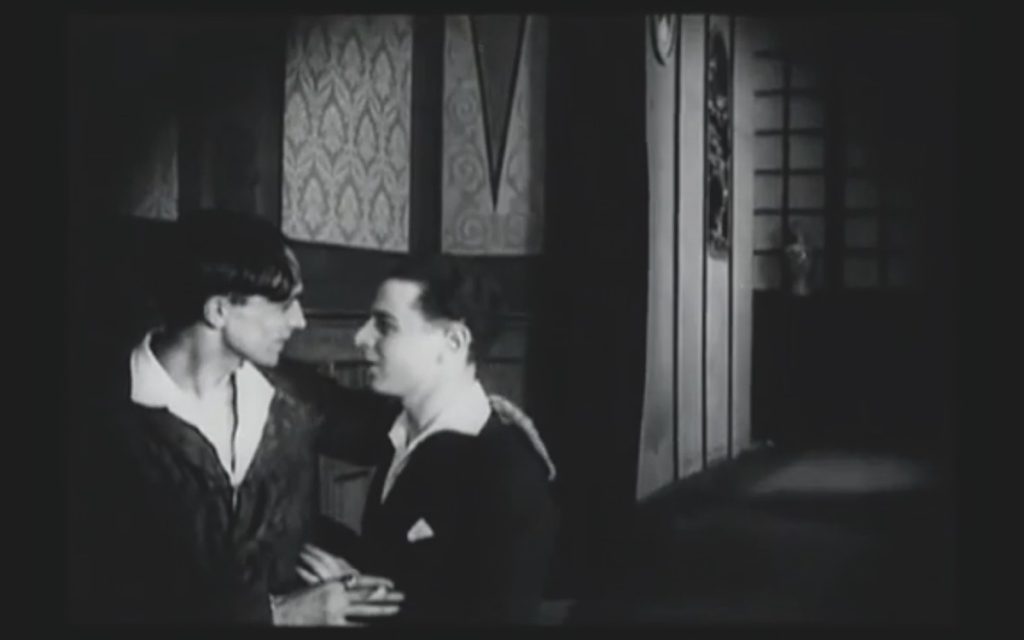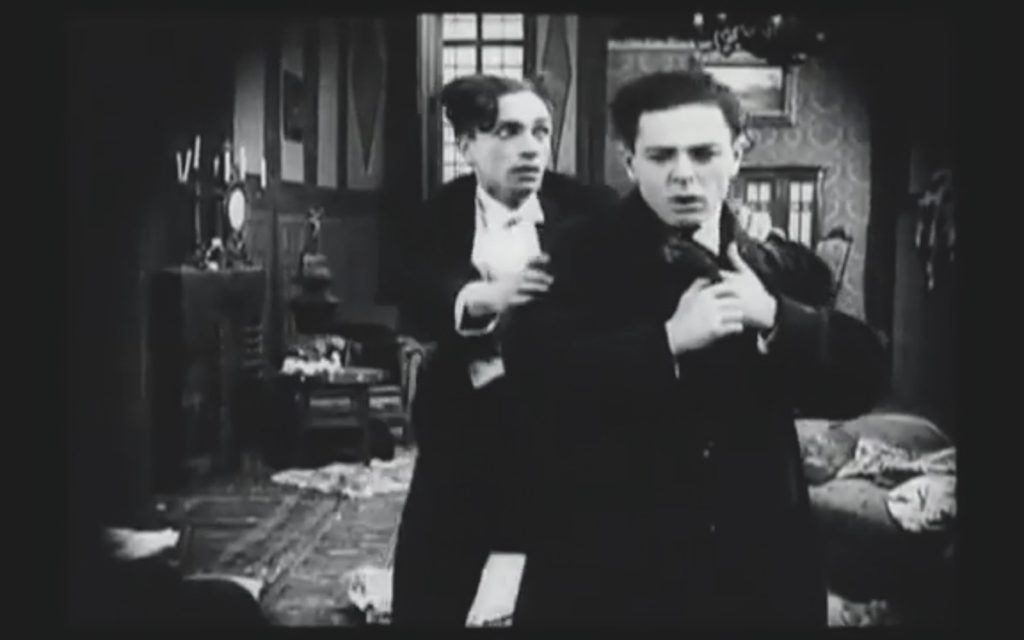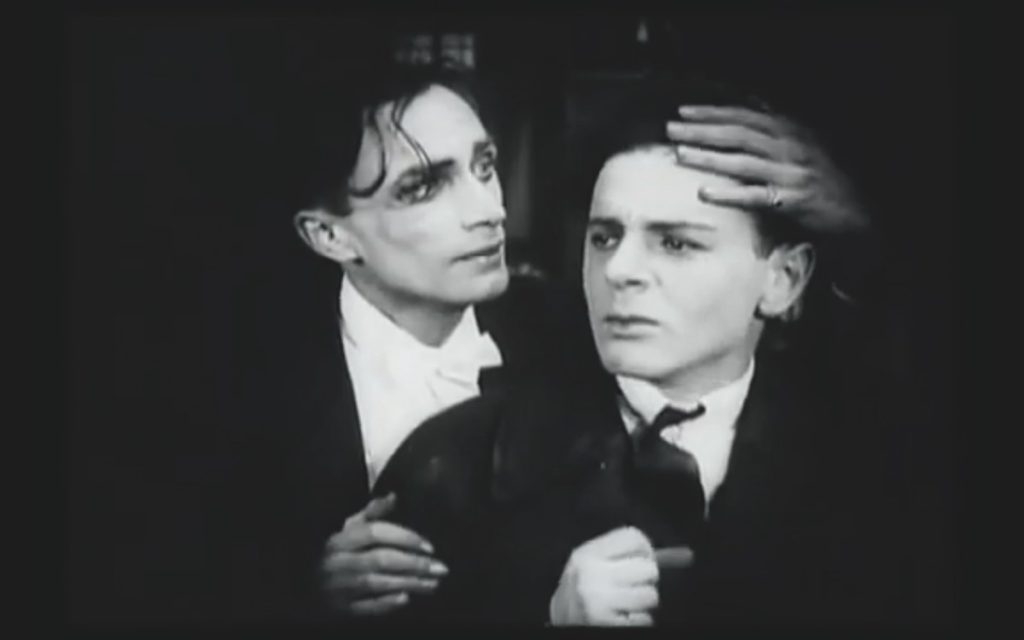A new play, which shines a light on a landmark pro-gay movie from the early 20th century, gets its world premiere in London this month. David Hudson talks to its writer and one of the cast.
A forgotten milestone in 20th-century gay history is vividly brought to life on the London stage this month. Different From The Others is widely regarded as the first cinema release to offer a pro-gay message. Remarkably, the silent German film was made and released in 1919.
You’ve almost certainly never seen it and probably never heard of it, despite its revolutionary-at-the-time call for understanding towards people with same-sex attraction.
It was shown in European cinemas for around a year before being pulled from public consumption. It was instead only allowed to be viewed by specific audiences for ‘educational’ purposes only. Then, when the Nazis came to power in the 1930s, they burned every copy of the movie that they could get their hands on, judging it to be immoral and likely to corrupt.
For decades it was believed the film had been lost. That is until one solitary copy turned up in the Ukraine. Despite it being incomplete (50 minutes remained of its original 80-minute duration), it was lovingly restored. It was shown at the 2013 Berlin Film Festival, and can even now be viewed on YouTube.

That’s where playwright Claudio Macor came across it by accident whilst searching for gay short films. He was blown away by the film and its progressive message. He set about finding out more and soon realised he had to do what he could to bring wider attention to this important piece of LGBT culture.
An established writer, with 13 plays, 4 screenplays and a musical to his name, 58-year-old Macor realised he’d found the perfect subject matter for his next project. Different From The Others, with its cast of six, will make its world debut at the White Bear Theatre in Kennington on 29 October and runs until 16 November. Macor was particularly keen to get the production on the stage this year to coincide with the 100th anniversary of the film’s release.
But how did such a movie actually come to be made in the first place?
“There was a brief period, after the First World War, for about 20 months, when the whole of Europe was completely reeling from what had happened,” he tells Boyz. “All of a sudden, people forgot about passing laws that were anti-gay or anti-anything. Russia was still undergoing revolution. The German Empire had fallen, the Ottoman Empire had fallen. So everything was in turmoil and they sort of took their eye off the ball.”
It was during this period that German physician and sexologist Magnus Hirschfeld – viewed by some as the world’s first gay activist – was able to espouse his views on sexuality without too much fear of reprimand.
Hirschfeld was aware that many gay men in Germany turned to suicide, unable to cope with the shame or stigma of their sexuality.
“[Hirschfeld] had to do something. He had to reach out and tell the gay community that it’s not a sin, it’s not a choice, that it’s not an illness, that it’s fine. That’s basically the message of this extraordinary film.”
The movie, co-written by Hirschfeld and starring Conrad Veidt (later to enjoy international fame in The Cabinet of Dr Caligari and Casablanca), tells the story of a renowned concert violinist who falls in love with one of his male students. The feelings are reciprocated and the two men are seen walking arm and arm with one another. Macor says, “they don’t kiss, but it’s blatantly clear they are in love.”
The intertitles – the text screens that are shown in silent movies between the action – emphasise the message.
“The first intertitle was ‘Love between the same sex is no less pure or noble than one of the opposite,’” says Macor.
“The other one is, ‘You must not judge your son because he is homosexual – it’s not a sin or a crime or an illness or a choice, but true to all of nature.’ This was written in 1919! Absolutely extraordinary!”
Some scenes of the film even depict a gay bar of the time, with same-sex couples dancing in the background.
Macor’s play tells the story behind the making of the film and what happened to it. It’s directed by acclaimed director Jenny Eastop. One of its cast members is Christopher Sherwood, who happens to be the husband of broadcaster Paul Gambaccini. He tells Boyz he knew nothing about the film before he became involved with the play.
“I’ve always tried to be aware of the pioneers who championed gay rights during very different and difficult times for us to enjoy the freedoms we do today, but this was certainly news to me. It’s surprising that exists, and even more surprising that people just don’t know about it.”
“The fact that this incredibly brave film was made and is so little known is what really appealed to me about this play–it’s an important and inspiring piece of our shared history that needs to be seen.”
Different From The Others is at the White Bear Theatre from 29 October – 16 November. Details at whitebeartheatre.co.uk



